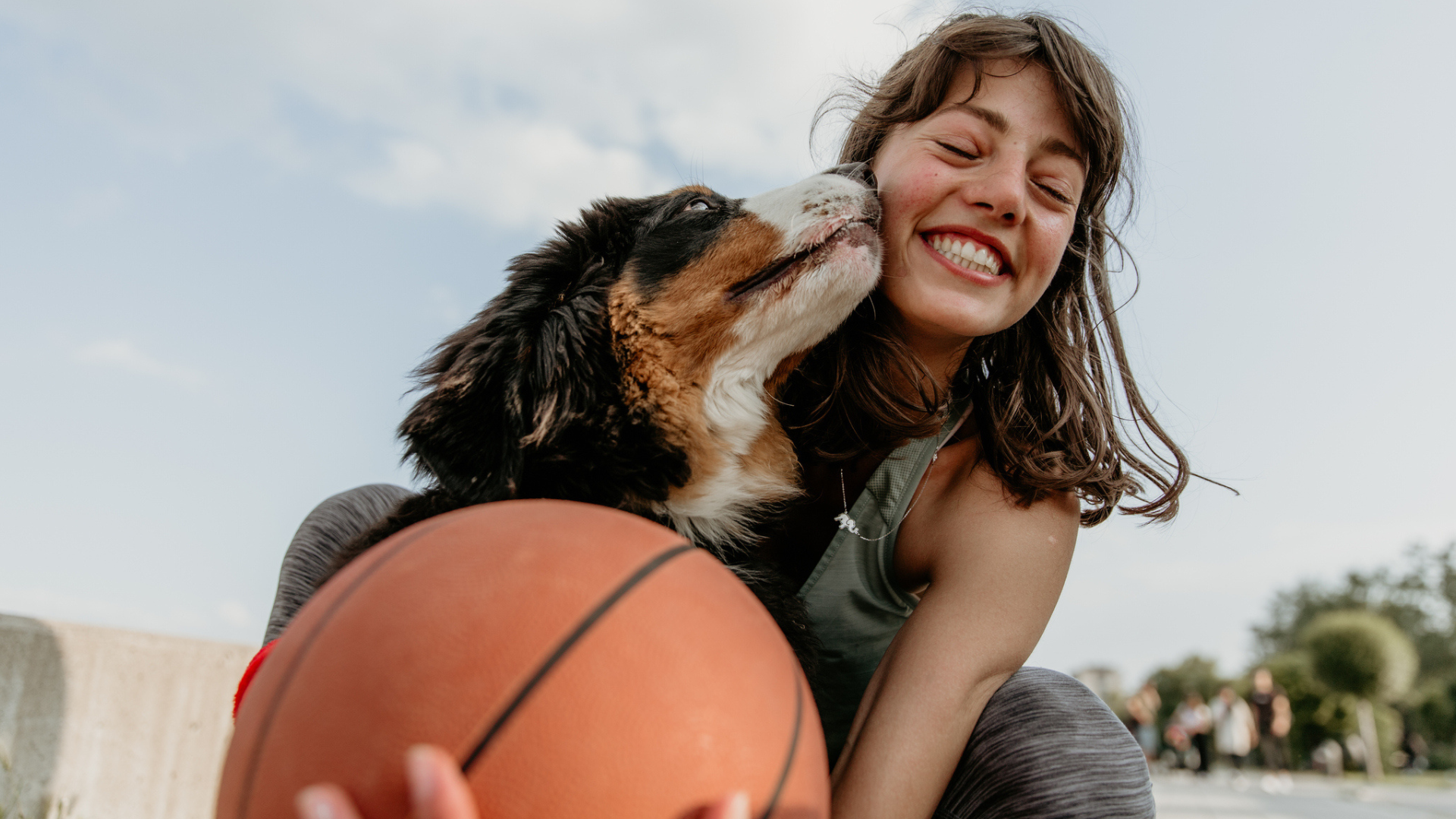
When we’re thinking about games to play with dogs, it’s not purely for us to have fun with them. Play can give so much more. Playing with your dog can improve their dog-to-human social skills, it can give an outlet for inherent breed desires and instincts, can physically tire them out, and can also provide a mental release.
While you’re playing with your dog, not only will they be learning new skills but you’ll also be learning more about them and how they prefer to interact with the world.
As a certified animal Behaviorist, specializing in dogs, I’m passionate about boosting our connections with these incredible animals. Playing games with your dog is such an amazing way to grow your relationship with them.
But if you feel like you’re stuck with just tossing a ball for your dog, then I’m here to inspire you with eight fun (and simple) games that you can start playing today! We’ll use some of your best dog toys (or best puppy toys if you’ve got a youngster), some yummy food or just your own physical presence to give your dog a whole lot of entertainment. Ready to have some fun? Then, read on…
8 fun games to play with a dog
Playtime doesn’t have to be hard work! You can set up a simple dog play area in your home and safely enjoy these fun games:
1. Hide and Seek
Hide and seek can be played with your dog so easily and is a great one to boost your dog’s recall for off-leash walks. It’s the most simple of all the games as all you need is yourself and your dog.
With your dog waiting in one room, head out to another space of your home and hide where they can safely find you. Then call their name and recall cue. Once they’ve found you, reward them with the best dog treat or give them a whole lot of fuss and attention. If you want to learn how to play hide and seek with your dog in more detail, check out this trainer's guide.
2. Tuggy
Tuggy is a great game for dogs who love to hold or bite things — this might be your retrievers or bull-breeds for example. Choose the best durable dog toy that you know they can hold onto. Make sure it's long enough for both their mouth and your hand to hold end each.
Wave the toy around and encourage your dog to grab it. When they do, gently pull with a small amount of pressure and move the toy around. Your dog will hopefully get the idea quickly to pull back on the toy, creating the ‘tuggy’ sensation. When you want to pause the game or to work on your dog’s ‘drop’ cue, simply offer a treat or another toy as a swap while saying ‘drop’. When your dog spits out the initial toy, either give them the treat or start playing tug with the second toy
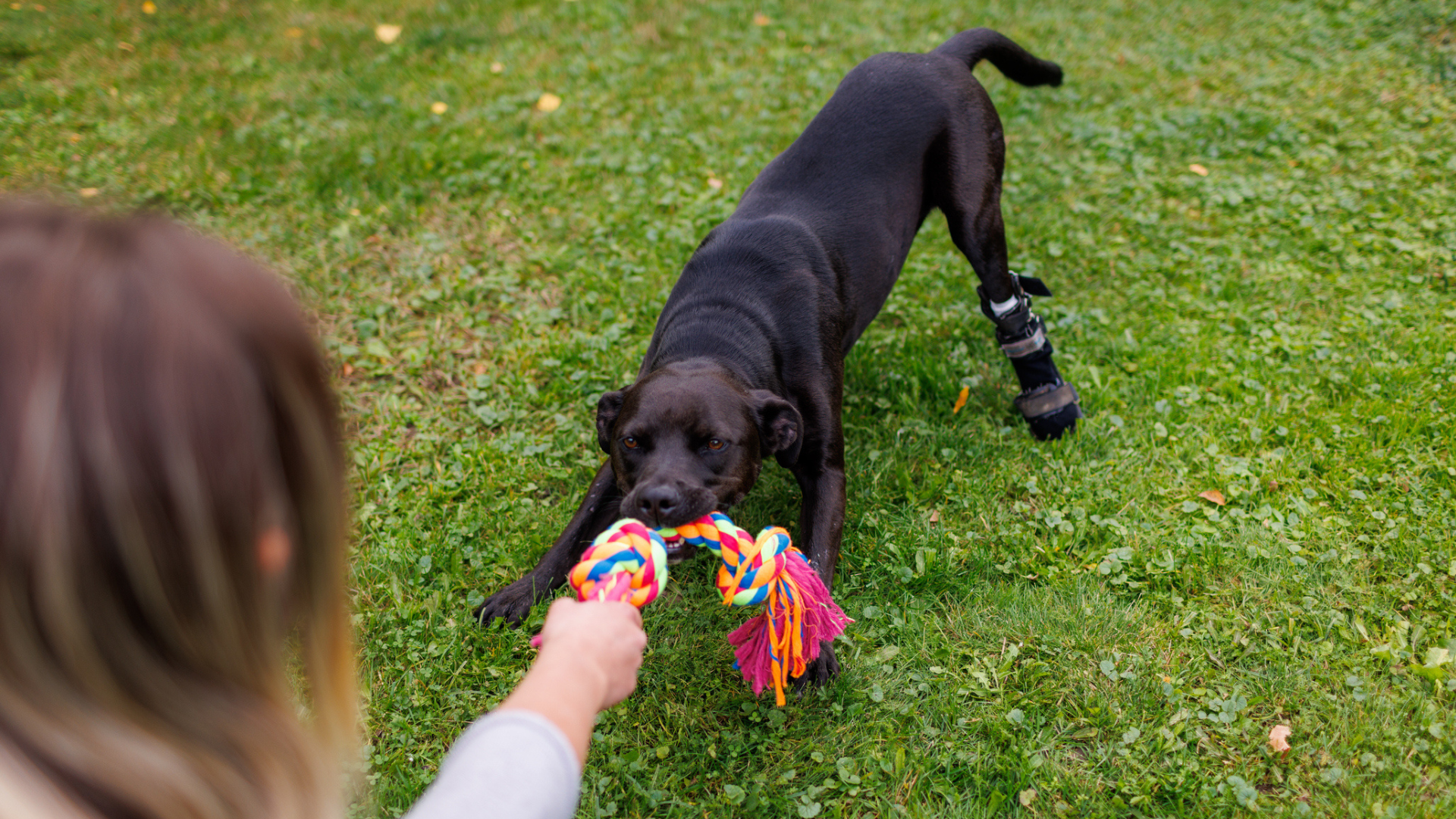
3. Treasure Hunt
Treasure Hunt is a food or toy based version of the ‘hide and seek’ game. This time, the dog isn’t looking for you but instead, some food or a favorite toy. Start super simple by using a box and throwing a treat in it, asking your dog to ‘find it’. Build up from here by placing the food further away from your dog’s starting point or in harder to reach places (although always safely accessible!)
4. Puzzles
Puzzles aren’t just for humans — there’s so many toys available for dogs these days! The best dog puzzle toys are durable so your dog can’t destroy them and not too tricky to get the hang of. When your dog starts using puzzle toys to find food, make it super easy for them to win at the game. You can even make your own puzzle toys by rolling up a towel with treats between the layers.
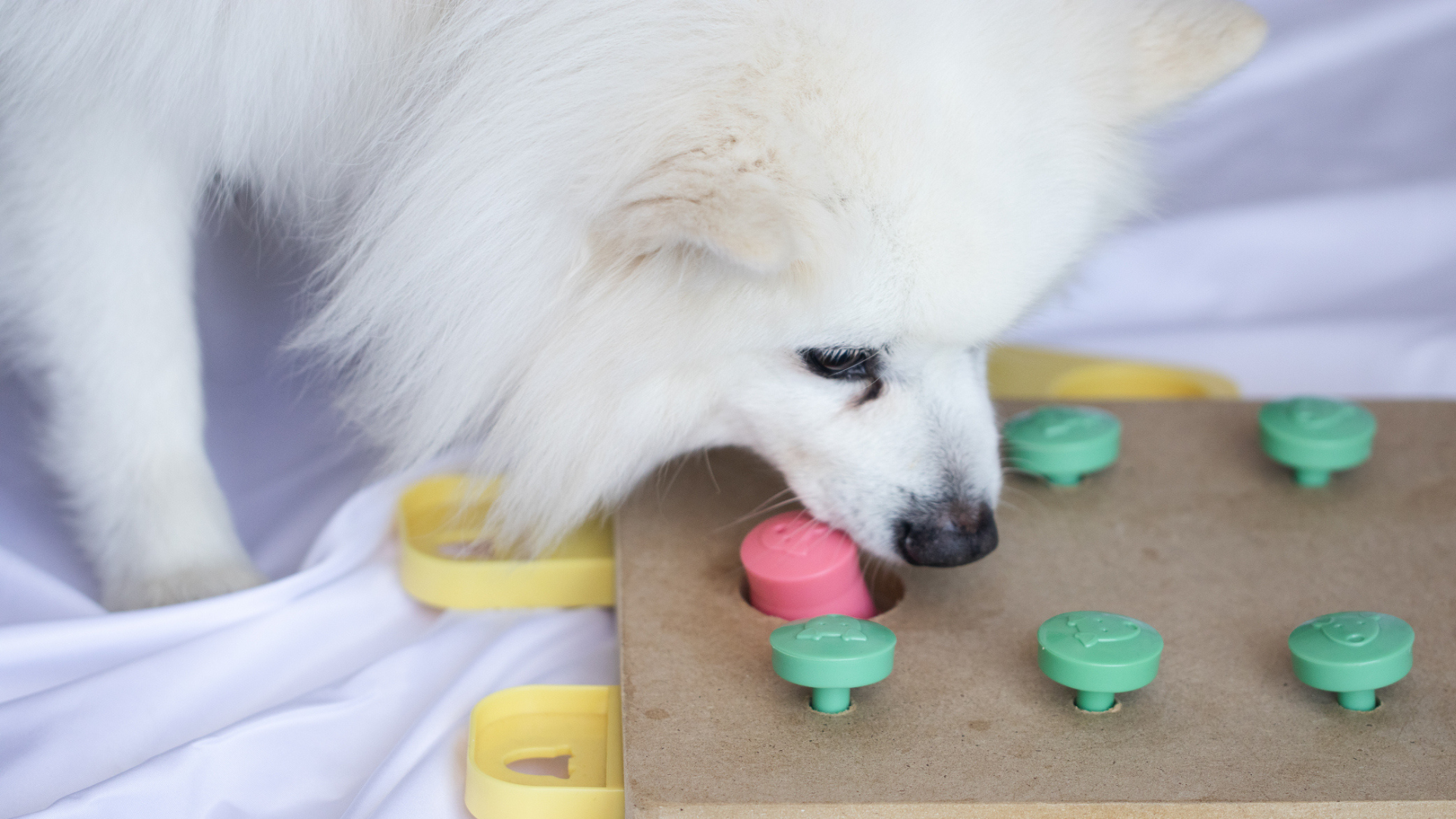
5. Dog agility courses
Dog agility courses don’t have to be complicated. You can teach any dog how to weave through some bamboo canes, jump over a raised pole (or just step over some cavaletti poles for young or older dogs), or run through a tunnel. Teach each piece of equipment on their own first and make sure you’re always working on a non-slip flooring beneath your dog.
Three to five minute training sessions are ideal for this sort of learning, and make sure there’s plenty of treats available to reward them for each go. Once your dog knows what it’s meant to do with each piece of equipment, you can then set up some mini-courses in your backyard!
6. Fetch
Fetch is another great game for those dogs bred to retrieve, but it can also be a whole lot of fun for almost any breed. Start with an item your dog would naturally pick up (a favorite toy or ball) and reward them each time they bring it to you. Once your dog has the idea of retrieving a toy, you can easily progress this to more complex tasks such as emptying the washing basket and bringing the items to you!
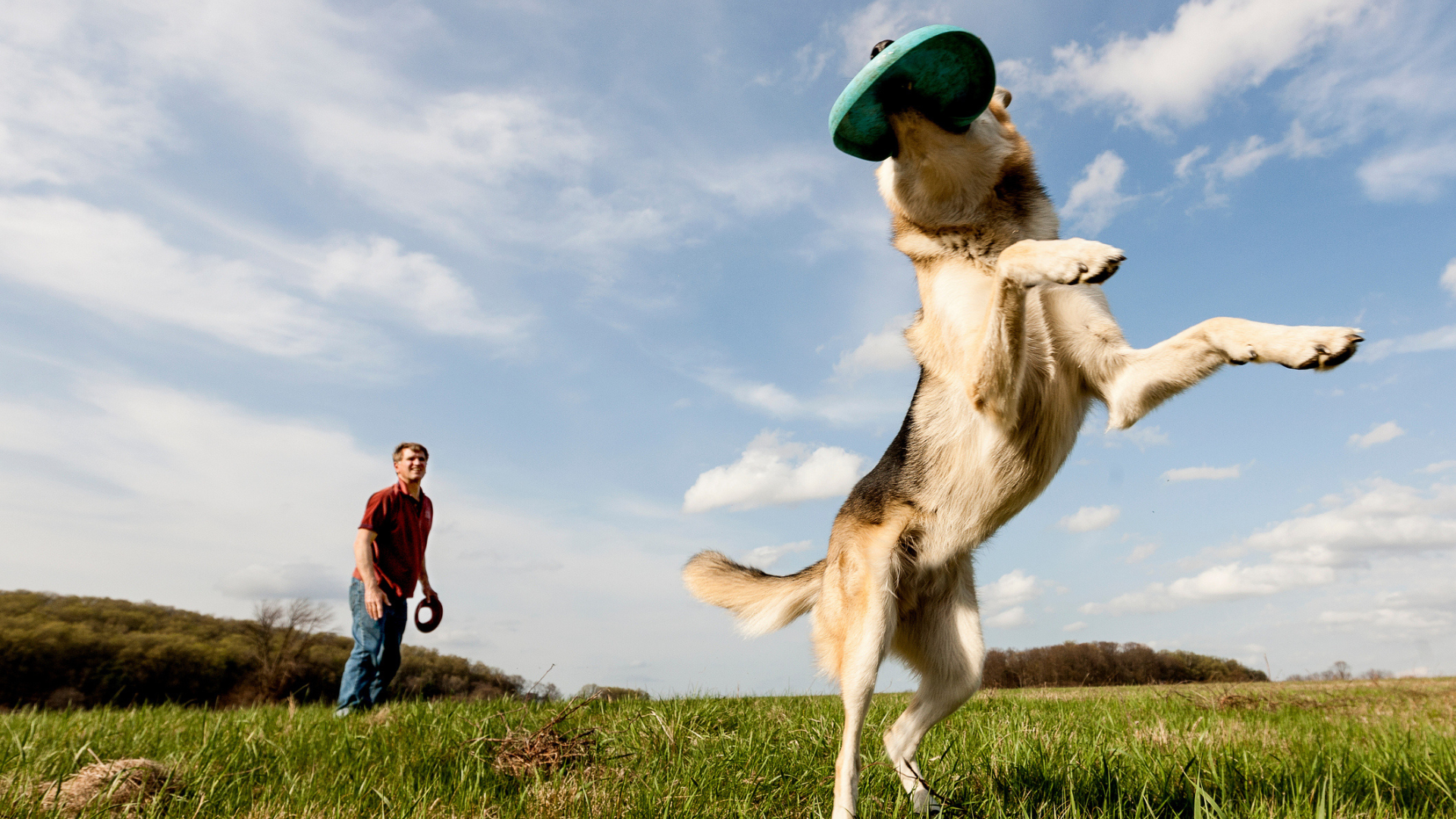
7. Scentwork
Scentwork is one of the best activities that suits all ages of dogs, as well as all breeds. It’s not just hounds who love to use their noses! Scentwork comes in many forms, but a great way to start is by teaching your dog to find a particular scent and using that smell on a toy you can then easily hide around the home. Popular smells include catnip.
Use a favorite toy and pop it into some Tupperware with some of your chosen scent. Leave it there for 48 hours to infuse, then throw the toy for your dog to ‘seek’ out. When they go and pick it up, reward them with a game of tuggy or a treat. Then start to hide that toy in more difficult to sniff out places. When they’re reliably finding the scented toy you could try hiding other objects with the same scent put on them.
8. Trick training
Trick training might not be thought of traditionally as playtime - but if you’re working on exercises that your dog loves to do such as spinning, paw targeting, running between mats, or something that suits their individual breed and character, then training can become play.
It’s a great way to boost your relationship as you work together to learn new tricks. Three to five minutes a day of trick training can give your dog a great mental workout.
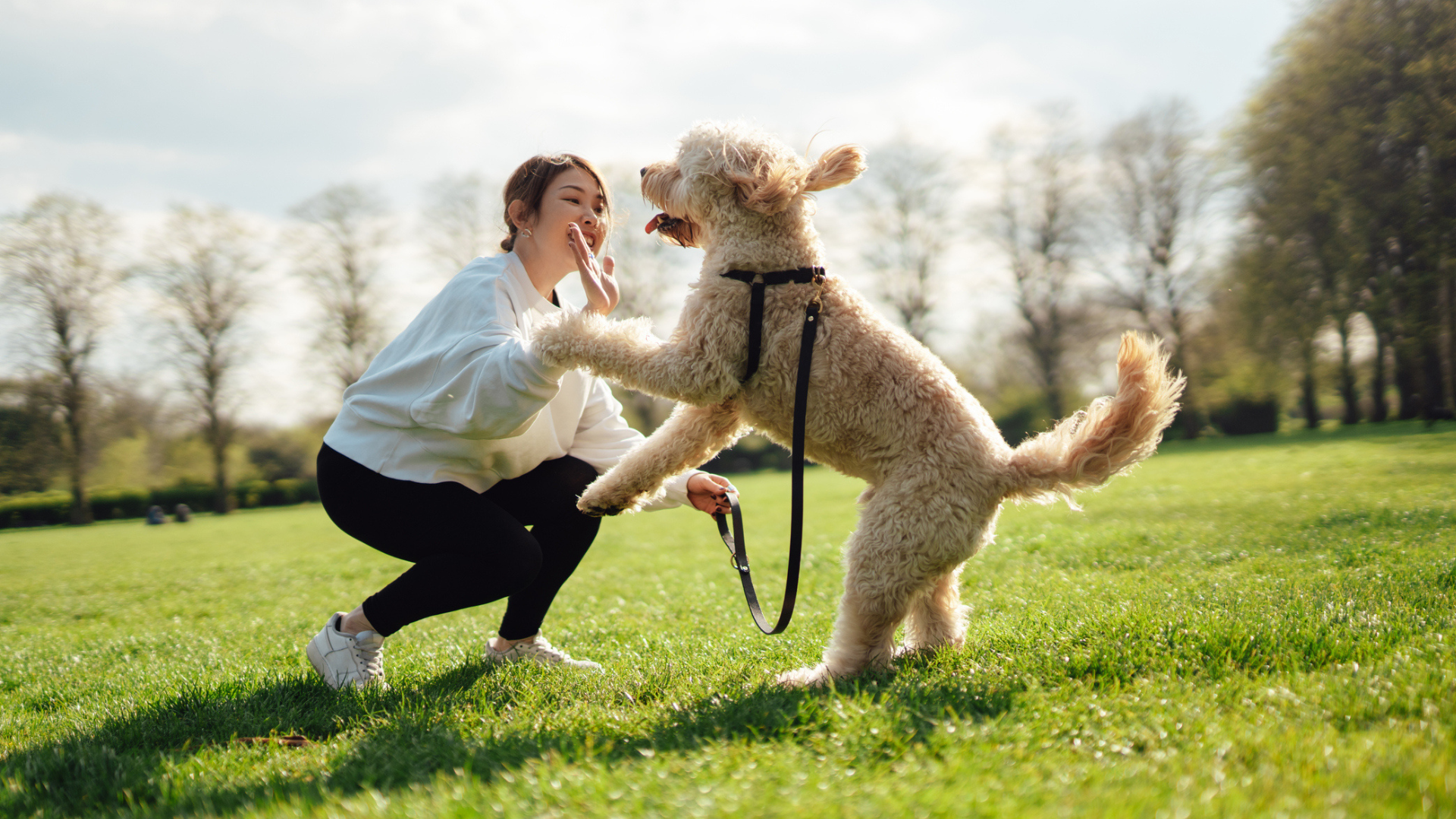
Why is dog play important?
Playing with your dog isn't just about having fun - it's essential for their well-being and the bond you share. Dogs crave interaction and companionship, relying on us for social and mental stimulation. By engaging in play, we fulfill their need for connection and contribute to their overall happiness.
Play provides a natural outlet for individual breed instincts - whether those be retrieving, herding, or chasing. Play can therefore not only satisfy your dog’s inherent drives but also prevents behavioral issues that may arise from boredom or under-stimulation.
If you can fit in regular five to 10 minute play sessions with your dog throughout the week, that will help to keep them physically and mentally stimulated - and you’ll see a boost in both of your mood states.
Want to learn what else you can do to occupy your dog’s day? Read our guide on dog enrichment for more ideas. And wondering why your terrier loves his squeaky ball above all other toys? We’ve got the answer to why do dog toys squeak!







